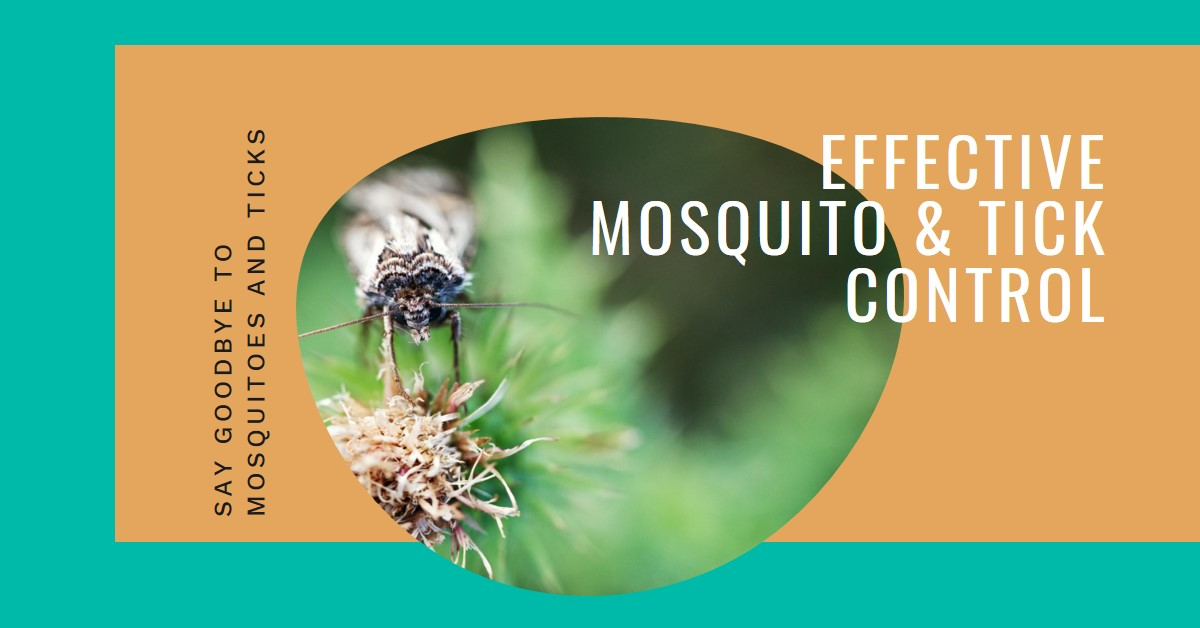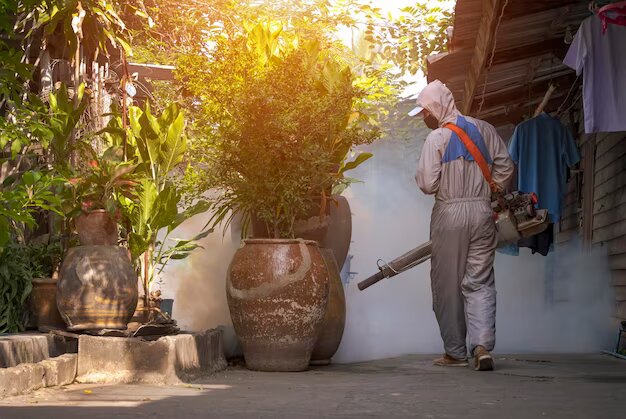In recent years, the escalating concerns regarding mosquito and tick-borne diseases have spotlighted the urgent need for innovative and effective control measures. As we step into 2024, Barnstable has witnessed remarkable advancements in mosquito and tick control services, reflecting a blend of scientific ingenuity and environmental consciousness. These breakthroughs not only promise enhanced efficacy in pest management but also prioritize the safety of families, including children and pets, fostering a healthier and more secure living environment.
The Rising Challenge
Mosquitoes and ticks are not just nuisances but vectors for serious diseases such as Lyme disease, West Nile virus, and Eastern Equine Encephalitis (EEE). According to the Centers for Disease Control and Prevention (CDC), reported cases of vector-borne diseases in the United States have tripled from 2004 to 2016. In Barnstable, the warm, humid climate coupled with abundant water bodies provides an ideal breeding ground for these pests, exacerbating the challenge of controlling their populations.
Cutting-edge Strategies in Mosquito and Tick Control
Genetically Modified Mosquitoes
One of the most groundbreaking advancements is the development of genetically modified (GM) mosquitoes. This approach involves altering the genetic makeup of male mosquitoes to produce offspring that do not reach maturity, thereby reducing future mosquito populations. Field trials have shown a significant decrease in mosquito populations in test areas, marking a promising step forward in mosquito control technology.
Biological Control Agents
Biological control has gained traction as a sustainable and eco-friendly method. The introduction of natural predators, such as certain fish species that consume mosquito larvae, and the use of Bacillus thuringiensis israelensis (Bti), a bacteria that specifically targets mosquito and blackfly larvae, have shown effective results. These agents offer a targeted approach, minimizing the impact on non-target species and the environment.
Tick Control Tubes
Innovations in tick management have led to the development of tick control tubes. These tubes contain permethrin-treated cotton that mice use for nesting material. Ticks feeding on these mice are exposed to the insecticide, significantly reducing tick populations. This method leverages the natural behaviors of ticks’ primary hosts, ensuring minimal environmental disruption.
Infrared Technology for Larvae Detection
Advancements in surveillance technology now include the use of infrared imaging to detect and map mosquito larvae populations in water bodies. This precision targeting allows for more efficient application of control measures, reducing the need for widespread chemical treatments and minimizing environmental impact.
Ensuring Safety for Families and Pets
Safety is paramount in the development and implementation of these advanced control methods. Rigorous testing and regulatory approvals are required to ensure that these innovations pose no harm to humans, pets, or the broader ecosystem. For example, GM mosquitoes and biological control agents undergo extensive evaluation to assess their impact on human health and biodiversity before field release.
Integrated Pest Management (IPM)
The concept of Integrated Pest Management (IPM) plays a crucial role in ensuring safety. IPM emphasizes the use of a combination of biological, physical, and, when necessary, chemical methods to control pests, with a preference for approaches that pose the least risk to human health and the environment. This holistic strategy is particularly important in areas like Barnstable, where the proximity to natural habitats necessitates a careful balance between effective pest control and ecological preservation.
Public Education and Community Participation
Educating the community about preventive measures, such as eliminating standing water, using personal protective measures, and understanding the safe use of repellents, is integral to the success of these advanced control strategies. Public engagement not only enhances the effectiveness of control measures but also ensures that the community is informed about the safety and environmental considerations of these approaches.
SS Mosquito Control: Leading the Charge in Barnstable
At the forefront of these advancements is SS Mosquito Control, a pioneer in providing state-of-the-art mosquito and tick control services in Barnstable. Leveraging the latest in pest management technology, SS Mosquito Control offers tailored solutions that address the unique challenges of the Barnstable area. With a commitment to safety and environmental stewardship, SS Mosquito Control ensures that families can enjoy their outdoor spaces without the worry of mosquito and tick-borne diseases.
As we delve deeper into the advancements in mosquito and tick control services for 2024 in Barnstable, it’s important to explore additional layers of innovation and strategy that complement and enhance the foundational methods previously discussed. These additional layers not only reinforce the effectiveness of mosquito and tick control but also underscore the commitment to safety and environmental sustainability.
Emerging Technologies in Pest Control
Smart Traps
Smart traps represent a leap forward in pest monitoring and control. These devices utilize attractants to lure mosquitoes and ticks, combined with sensors and artificial intelligence to identify, count, and even determine the species of the pests. This data-driven approach allows for real-time monitoring of pest populations, enabling more timely and targeted control interventions while minimizing the use of broad-spectrum insecticides.
CRISPR Gene Editing
Building on the concept of genetically modified mosquitoes, CRISPR gene editing technology offers a more precise method of genetic intervention. By targeting specific genes responsible for disease transmission or reproduction in mosquitoes, scientists can potentially create populations that are either incapable of carrying diseases or that diminish over time. This precision not only enhances the effectiveness of control measures but also mitigates concerns related to ecological impacts.
Eco-Friendly Repellents
The development of new, eco-friendly repellents is another area of significant progress. These repellents are derived from natural sources and are designed to be safe for use around children and pets. They provide a non-toxic alternative to traditional chemical repellents, reducing the potential for adverse health effects and environmental contamination.
Enhanced Surveillance and Data Analytics
The integration of advanced surveillance systems and data analytics plays a critical role in the modern approach to pest control. By leveraging satellite imagery, drones, and geographic information systems (GIS), experts can map and predict mosquito and tick breeding hotspots with unprecedented accuracy. This information, combined with sophisticated data analytics, allows for predictive modeling of pest population dynamics, facilitating proactive rather than reactive control measures.
Community-Centric Approaches
Understanding the importance of community engagement, innovative programs are being developed to involve local residents in mosquito and tick control efforts. Citizen science initiatives, for example, empower individuals to contribute to surveillance efforts using smartphone apps to report sightings or breeding sites. This inclusive approach not only enhances the scope of monitoring efforts but also fosters a sense of community responsibility towards environmental health.
Regulatory and Policy Frameworks
Accompanying technological advancements, robust regulatory and policy frameworks are being established to ensure that new pest control methods are evaluated and deployed responsibly. These frameworks are designed to rigorously assess the efficacy, safety, and environmental impact of new technologies before they are approved for use. They also ensure that there is transparency in the decision-making process, providing reassurance to the public regarding the safety of advanced pest control methods.
The Role of Professional Services
In this evolving landscape, the expertise and experience of professional pest control services, like SS Mosquito Control, become invaluable. These services not only have access to the latest technologies and methods but also have the expertise to implement them effectively and safely. Their role in educating the community and providing customized solutions that meet the specific needs of the Barnstable area cannot be overstated.
Looking Ahead
As we continue to navigate the challenges posed by mosquitoes and ticks, the advancements in 2024 point towards a future where effective control is achievable without compromising safety or environmental integrity. The combination of scientific innovation, community involvement, and professional expertise is reshaping the way we approach pest management, promising a safer, healthier future for Barnstable residents.
In conclusion, the landscape of mosquito and tick control in Barnstable in 2024 is marked by a harmonious blend of technological innovation, community involvement, and regulatory oversight. This comprehensive approach not only addresses the immediate challenges posed by pests but also lays the foundation for a sustainable coexistence with our natural environment. As we continue to navigate this journey, one must ponder, how can we further enhance our collective efforts to safeguard our community’s health and well-being?
Also know Fight the Bite: Mosquito Control Tips for a Pest-Free Home.



